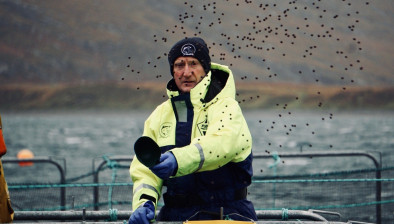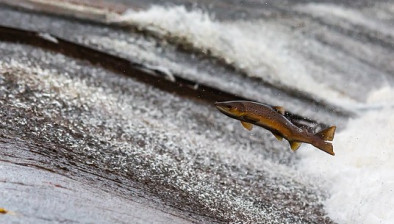Scottish salmon farmers warn of £9m Brexit burden
Scottish salmon farmers have warned that they face ” huge unnecessary burdens” and a loss of market share under the UK government’s plans for Brexit.

Julie Hesketh-Laird, chief executive of the Scottish Salmon Producers Organisation (SSPO), said that companies were being urged to prepare for trade barriers with the EU.
The salmon industry is also warning that added red tape could see a £9 million increase in costs and add delays to the departure of fresh fish.
The UK government said it would inform salmon producers later this year on the measures they needed to take.
Ms Hesketh-Laird said planned changes would require salmon farmers to have an export health certificate for every consignment, signed by a vet or health official. This could mean up to 100,000 certificates per year, with the cost estimated to reach £9 million annually, depending on the fees set by local councils.
She added that salmon producers were worried that the long-term relationship with Europe could see a 2% tariff on fresh fish rising to 13% for smoked salmon. That would put Scottish salmon exports at a disadvantage, creating an opportunity for Irish, Norwegian, Faroese and Canadian exporters to gain market share, the BBC reports.
Ms Hesketh-Laird said such changes would place “huge unnecessary financial and bureaucratic burdens on our sector, potentially undermining what is one of the UK’s biggest modern export success stories”.
She continued: “Scottish salmon is a fantastic product, but we compete with other jurisdictions from Faroes to Norway to Ireland. Any extra cost will eventually be borne by the consumer, so keeping the bureaucracy and administrative costs to a minimum is really important.
“But it’s non tariff barriers that can really strangle a sector - so (along) with delays at the border, additional paperwork, the fact that fish won’t go out in as fresh a state as we want it to, these certification issues will hugely snarl up a successful Scottish business.”










